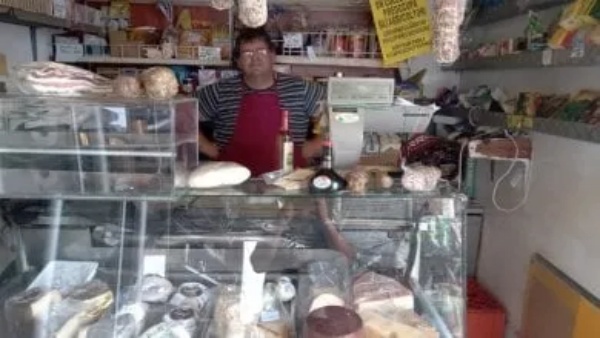Certain grocery stores should become DRONES, not trucks
But even that would be a partial solution.
Luca Assanelli and his wife are the long-time owners of a small grocery store in a remote part of Piedmont that survives only because… half of the time it’s not a store but a truck:

More exactly, says this article, Luca’s wife still opens the store three days a week, just for tradition. But Luca jumps every day on the food truck shown above, to visit some of the about thirty villages in the area that lost something like 90% of their residents since the 1990s, and consequently all of their own stores.
Being the only “local” grocery store in so many communities still isn’t enough to make the Assanelli’s business economically sustainable, because, on average, there are just three or four customers left in every village.
The easy solution
From a purely geeky, technological point of view, the way to bring the Assanelli and all other grocery stores in similar conditions worldwide back to profitability could be quite simple.
I would love to see some of the “high-tech startup” that waste billions of Euros every year inventing problems for their “solutions” give both the Assanelli and their customers all they would need (gear, training, support…) to order order the same groceries online, and have them delivered by drones, taking off straight from the store every day.
This is not science-fiction, or whishful thinking. It’s just bringing to the next (or lower?) level what is already being tested in Ireland right now.
and what it would NOT solve
Small communities scattered over large undeveloped areas, made of single-family homes, or very small buildings are perfect for drone-based delivery.
Sending groceries or any other product by drones woul also be “quieter, greener, faster, respects privacy and is safer than street-based alternatives."
The obvious downside, for many customers, at least, would even more loneliness and alienation. Assanelli explicitly observes that a non negligible, if not monetizable part of what he delivers every time he enters a village is someone to talk with, that is social cohesion and connection. Drones could have almost the opposite effect.
In other words, technology alone can never solve human problems. Obvious, but never repeated enough.
Who writes this, why, and how to help
I am Marco Fioretti, tech writer and aspiring polymath doing human-digital research and popularization.
I do it because YOUR civil rights and the quality of YOUR life depend every year more on how software is used AROUND you.
To this end, I have already shared more than a million words on this blog, without any paywall or user tracking, and am sharing the next million through a newsletter, also without any paywall.
The more direct support I get, the more I can continue to inform for free parents, teachers, decision makers, and everybody else who should know more stuff like this. You can support me with paid subscriptions to my newsletter, donations via PayPal (mfioretti@nexaima.net) or LiberaPay, or in any of the other ways listed here.THANKS for your support!